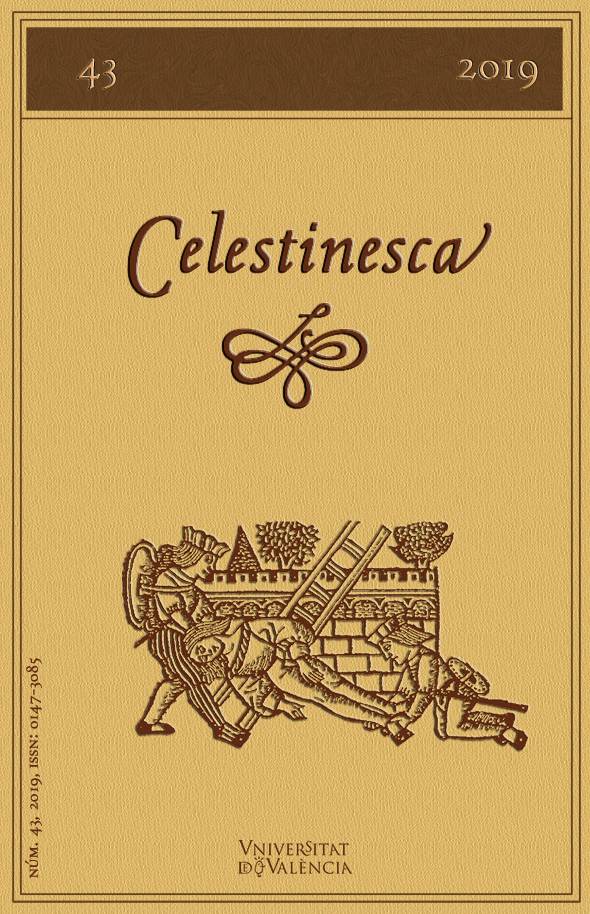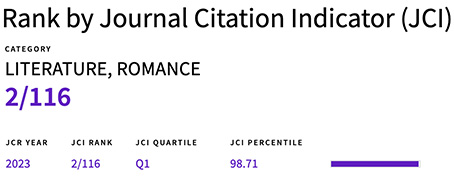Corrections in the Tragicomedia provoked by criticisms of the Comedia . The textual construction of the Comedia as inherent to traditional practices and the support of Cisneros
DOI:
https://doi.org/10.7203/Celestinesca.43.20243Keywords:
Celestina, Cisneros, Socio-cultural Context, Paratexts, Conflation, Humanistic Comedy, Literary Editor, Franciscans Abstract
Abstract
This paper examines some of the modifications that were included in the Tragicomedia to silence the critics the Comedia had received. The analysis allows to identify some traces of a preexisting handwritten Comedia de Calisto y Melibea with a happy ending in the humanistic style, that was «ended» (re-elaborated for the printing press) by Rojas, who also gave it a tragic moralizing end. Some elements difficult to understand that are the result of that process are brought into focus. Many of them, despite the clarification attempts of the Tragicomedia, have been the object of controversy, as is the case of the alleged witchcraft, the chronological disparities, and some misunderstandings in the paratexts and authorship. The study leads to establish four phases in the composition that were rearranged one after the other until the known moralizing version in 21 autos that received Cisneros's support to be printed.
 Downloads
Downloads
Downloads
Published
How to Cite
-
Abstract728
-
PDF (Español)255
Issue
Section
License
![]() Celestinesca is committed to the dissemination of knowledge, that is why access to its contents is free and is ruled by a Creative Commons Attribution-NonCommercial-NoDerivatives 4.0 license.
Celestinesca is committed to the dissemination of knowledge, that is why access to its contents is free and is ruled by a Creative Commons Attribution-NonCommercial-NoDerivatives 4.0 license.
Authors retain the rights to their works. Therefore, they can disseminate them and deposit them in the repository, institutional or not, that they wish. However, they are kindly requested to do so by providing the full bibliographic reference and the corresponding DOI.
Celestinesca does not charge authors for submitting, processing, reviewing or publishing their articles.





